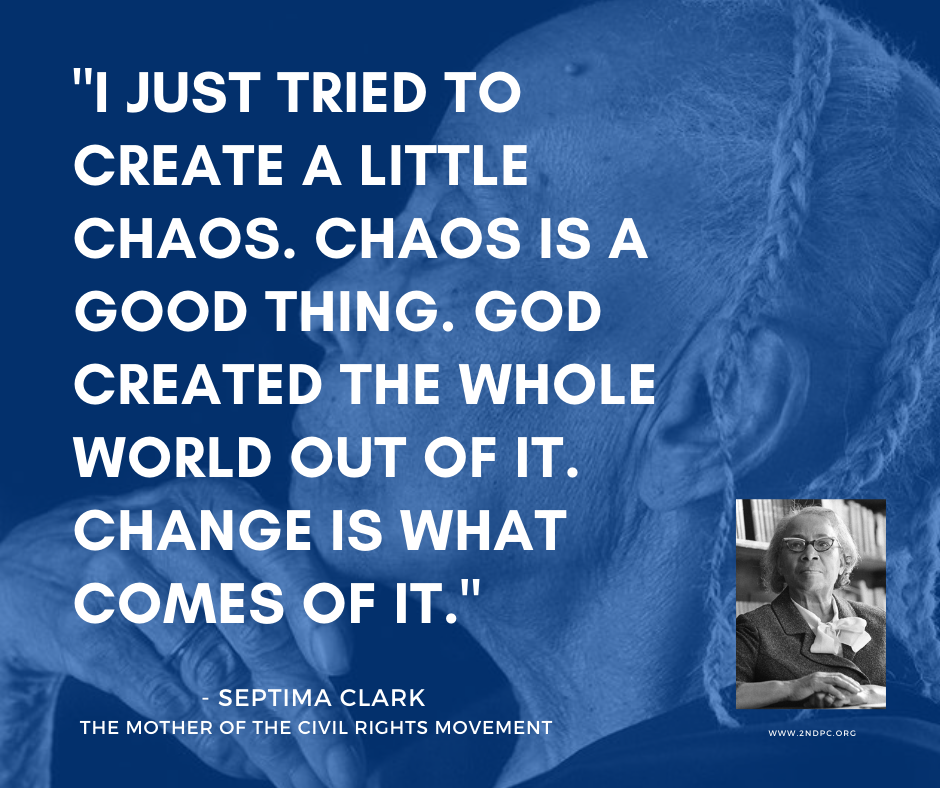Honoring the significant contribution of Charleston's Septima Clark.
Septima Poinsette Clark was called the mother of the civil rights movement. She was a teacher for 40 years and has a long legacy of education and teacher activism. She fought to allow Black teachers in Charleston classrooms and was later instrumental in gaining pay equity for Black teachers in South Carolina, and her citizenship workshops influenced Martin Luther King, Jr. and Rosa Parks.
Septima started teaching on Johns Island because Black teachers were not allowed in Charleston schools at the time. She taught for 40 years mostly in Charleston and Columbia until she was fired because she refused to resign from the NAACP after South Carolina passed a statute that prohibited city and state employees from belonging to civil rights organizations. She went on to develop citizenship workshops full time that King’s Southern Christian Leadership Conference took nationwide. They were designed not only to promote adult literacy but to educate people about civics and get them involved in their communities.
Septima pioneered the concept of citizenship schools and went on to create over 800 of them across the South. The schools are credited with helping three-quarters of a million African Americans register to vote by the end of the 1960s. She retired from SCLC in 1970 and was elected to the Charleston School Board in 1975. The governor reinstated her pension the next year after declaring her 1956 termination unjust. She also published two memoirs, earned her master's degree, and was given a Living Legacy Award by President Carter. Septima Clark saw herself as “just a teacher,” but she mothered a movement and helped shape an entire country for the better.

